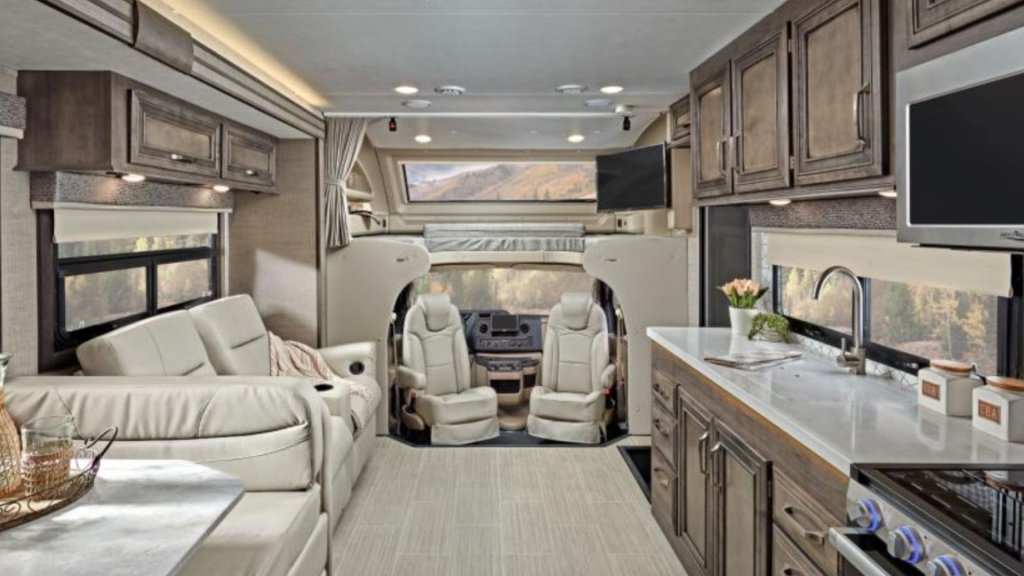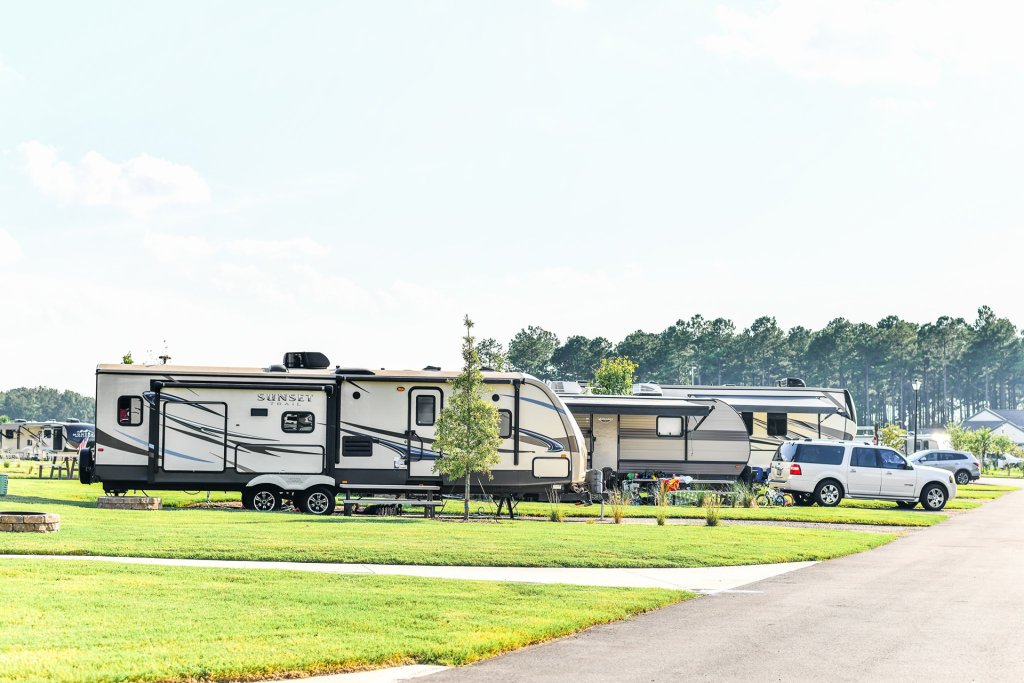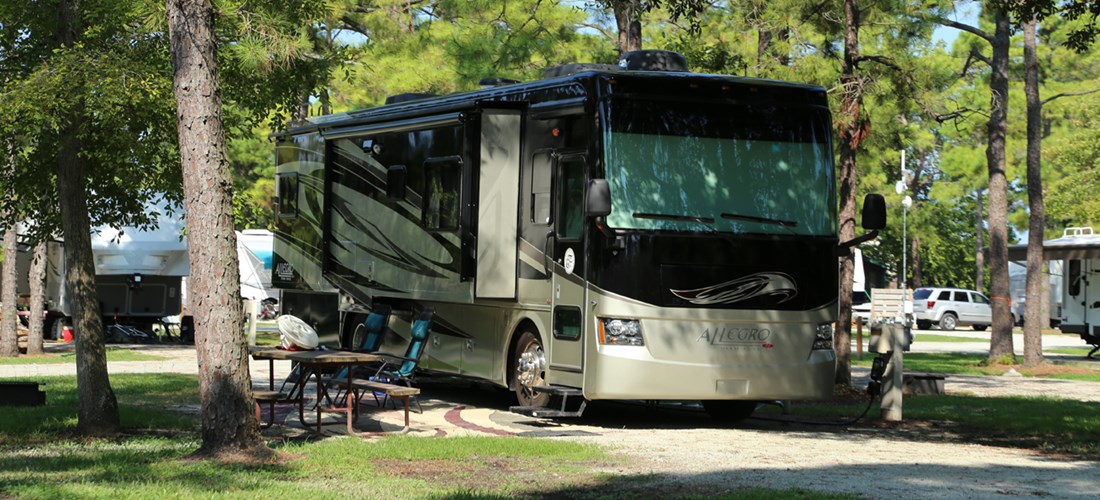Freedom, flexibility, privacy, and a place right amid nature are all perks of traveling by an RV. Traveling with a pet, exploring new open roads, visiting multiple destinations without having to pack and unpack every time, and having a kitchen available for people with special dietary needs are all included in the RV travel package.
Dry camping allows people to park in trailer parks or more secluded places without giving up facilities and conveniences like a bed and a place to stay.
RVs are popular choices for people traveling to festivals, concerts, sports leagues, or even visiting family. Whether it is to stay warm on a cold night or you want to watch a Live basketball game on television, there are multiple reasons to leave your RV running all night. You can look into how to install RV hookups on the property to rest overnight.
Is It Okay if the RV Runs All Night?

Many campers avoid boondocking during the night because the notion is that it is not safe to leave an RV or an RV generator running all night. While this is not really true, considering that such a case would defeat the purpose of traveling in an RV, there are advantages and disadvantages of leaving an RV running all night and certain things that you need to be careful about when doing so.
Advantages
- Climate control: Leaving your RV running while you camp in severe weather might help keep the interior at a comfortable temperature by using the heating or cooling systems.
Disadvantages
- Fuel Consumption: Leaving an RV running all night will consume a lot of fuel. The efficiency of RV fuel is less than that of stationary generators, which are made to be used for long periods.
- Noise: RV engines are usually quite noisy. Running the engine all night might interrupt your sleep and disturb the campers around you if you are in a trailer park or campground.
- Exhaust Fumes: Exhaust fumes are generated if engines are left running for long periods. These fumes can be very harmful if there is no proper ventilation. You don’t want to run your generator all night to get a good night’s sleep and then wake up dead from a fire or CO poisoning. Carbon monoxide is a toxic gas often known as the silent killer because it is colorless, odorless, and tasteless, and it kills swiftly.
- Possible Fire: One problem is that the batteries charge while you are hooked in. The H2O in the battery is usually converted while the batteries are charging into H2 and O, which leaves the battery. The thing to keep in mind is that when the water level in the batteries drops, they could become damaged. Apart from this, there is also a small possibility of the H2 igniting and creating a fire.
- Wear and Tear: The speed of wear and tear will increase if the engine is left running continuously for long periods. This will decrease the lifespan of your engine.
- Rules and Regulations: Some campgrounds and areas have regulations against running engines for prolonged periods due to noise and environmental concerns.
Crucial Factors to Keep the RV Running All Night

If you have considered these pros and cons and decide to leave your RV running all night, keep the following things in mind:
- Check that the exhaust is working to prevent the buildup of carbon monoxide.
- For your safety, install a carbon monoxide detector inside the RV.
- Make sure that you are allowed to run the engine all night by checking the laws in your area and the rules of the campground.
- The electronics in the RV may get damaged by power surges or abrupt drops in voltage. Set up a surge guard or electrical management system between the power supply and the RV. These systems can serve as a shield against electrical fluctuations.
- Consider trying alternative options like a generator, an electric hookup, or propane-powered appliances for heating and cooling if you’re worried about fuel consumption, noise, or engine wear.
- You should primarily think about the two categories of generators: portable and built-in. The electrical system of your RV is hardwired to accommodate built-in generators. They are started with a button, and fuel is drawn from the fuel tank of your RV. Portable generators must be kept inside your RV before being taken outside to be used. With built-in ones, you can avoid carrying it with you, and it can’t be stolen. Ones that are portable cost less and are simpler to access and maintain. Built-in ones are typically noisier for you, but your neighbors will enjoy them because of how quiet they are outdoors. On the contrary, you can use a portable generator by keeping it a little away from your RV, but your neighbors won’t like the extra noise. Both offer benefits and have drawbacks, so you should decide which best suits your way of life.
- You can consider adding solar panels to your RV to generate energy safely.
In many cases, it’s more practical and efficient to use alternative power sources, such as generators or shore power, for extended periods of energy consumption while camping. Always prioritize safety and environmental considerations when making these decisions.
Conclusion
The decision to leave your RV running all night comes with a set of advantages and disadvantages that you should carefully consider. While it can provide climate control in extreme weather conditions, there are notable drawbacks, such as increased fuel consumption, noise, potential exhaust fumes, fire risks, accelerated wear and tear on the engine, and potential legal restrictions in certain areas.
To ensure safety and a positive experience while camping, it’s important to take precautions. Make sure you are abiding by all the rules and regulations and staying safe. Use your RV to its full capacity, and enjoy your vacation!

